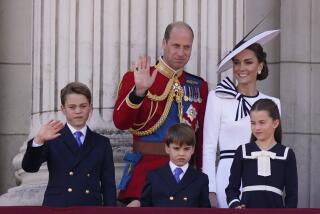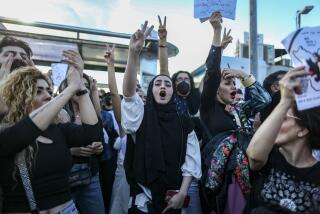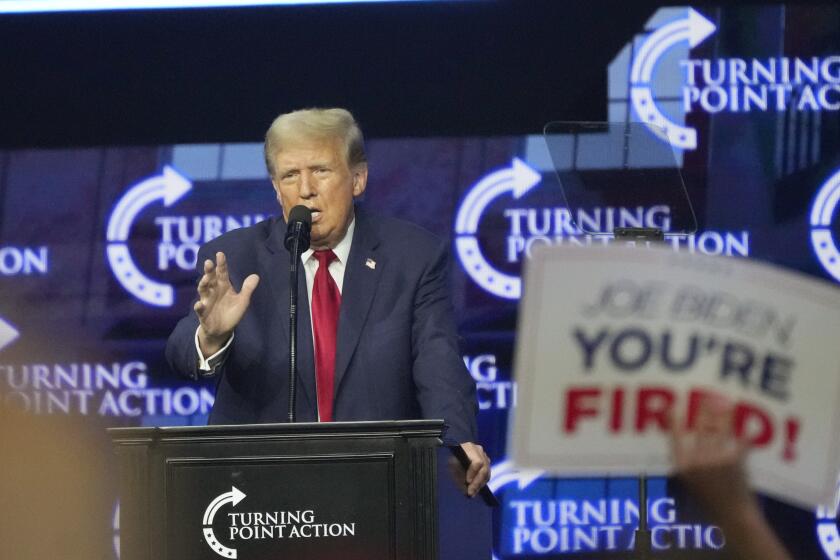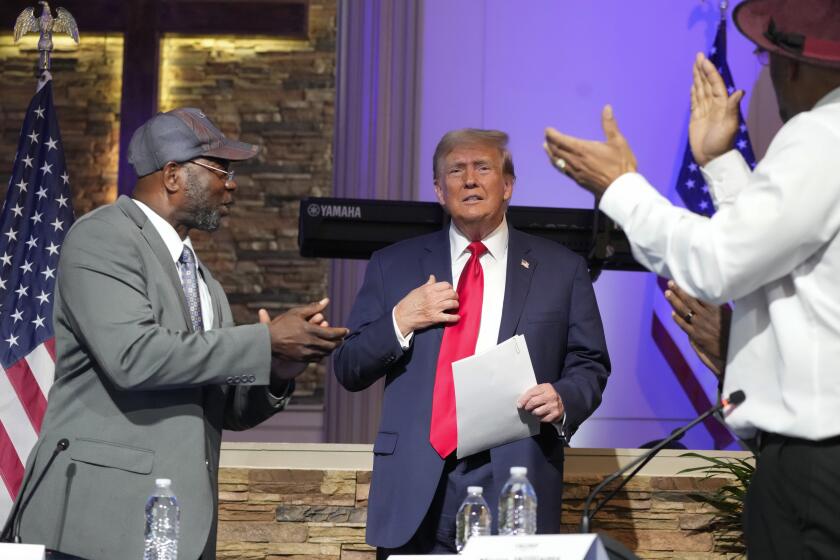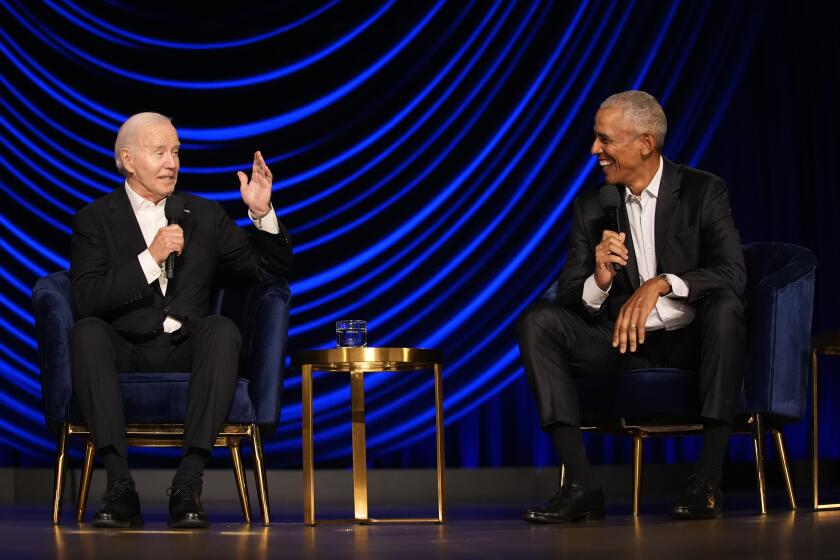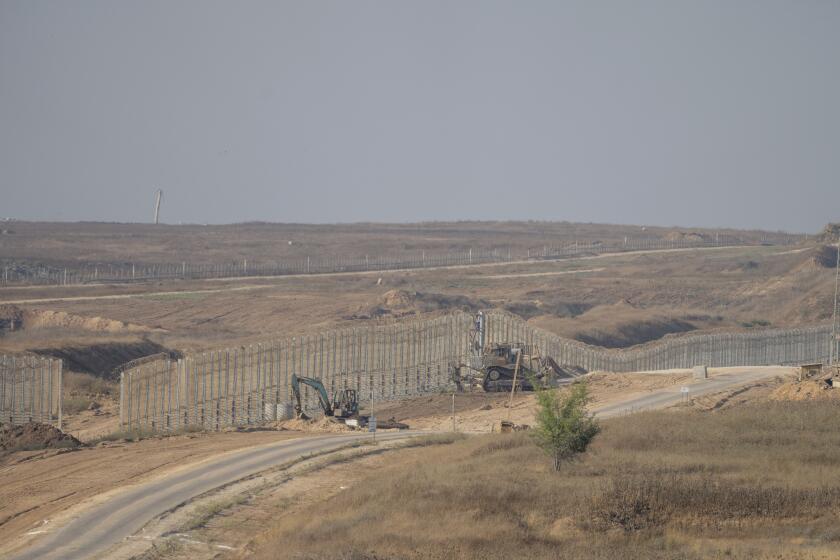Does the Pope Have the Power to Free Cuba?
How come the pope gets to go to Cuba and we can’t? Not legally anyway, unless we go through all sorts of contortions to get the State Department’s permission. The Clinton administration has indicated that American Catholics will be allowed to go next month in a pilgrimage to pray with the pope. But going down there to swim, buy cigars or deliver sorely needed medicines is still not kosher. Even executives of foreign companies doing business in Cuba are subject to reprisals and can be barred under the Helms-Burton Act from ever entering the U.S. Actually, the pope himself could be banned from this country under Helms-Burton if it could be shown that he entered into discussions on the return of church property when he meets with Fidel Castro.
While the pope’s visit is an enormous embarrassment to an outdated and always irrational U.S. policy, and has been welcomed by Castro for that reason, it could also seriously undermine his regime. That’s what happened in Poland after the pope’s 1979 visit. Castro has already declared Christmas a holiday for the first time in almost four decades, so who knows how far this can go?
Last Saturday, the pope’s Christmas message to the Cuban people, urging Cuba’s rulers to acknowledge that Christmas is “part of the religious and cultural patrimony of Cuba,” was plastered across the front page of Granma, the Communist Party newspaper, and read in its entirety on the main news station.
Pope John Paul II, in frail health, is planning this trip because the Catholic Church’s situation in Cuba has improved dramatically in the past seven years, and he has guarantees that all of the Cuban faithful will have access to his message.
Cuba remains a highly repressive country with serious human rights violations, but it is no small matter that religious freedom has become an accepted right. The government now defines itself as secular rather than atheist, and the Communist Party accepts practicing Catholics as members. Since Catholic priests are routinely jailed in Communist China as a matter of official policy, it is absurd to defend the embargo against Cuba on human rights terms while we trade with China as a “most favored nation.” The observance of Christmas is banned in quite a few countries with which we maintain the warmest relations, including Saudi Arabia, where any manifestation of Christianity is forbidden and converting carries the death penalty.
Cuba’s isolation has long been justified by the claim that Castro represented a threat to subvert his neighbors. But we are now the only neighbor that does not have normal relations with Havana. Even Keith Mitchell, the prime minister of Grenada, visited Cuba this year, and he’s in power today because Ronald Reagan invaded his tiny nation to “save” it from Cuban doctors, teachers and other advisors who the U.S. claimed were subverting the island. Ingrate that he is, Mitchell said, “When we look back on our relationship with Cuba, I think most Grenadians of all ages and groups agree that, overall, the Cuban role and presence here was positive.”
Mitchell referred to the “strategic relationships” developing among the nations of the Caribbean, including Cuba. Lest Washington security analysts panic over this development and threaten once again to blow up the world over the Cuba threat, it should be pointed out that the “strategic relationships” center on offering tourist packages that will allow German and Canadian tourists to make multiple landings on the region’s legendary beaches.
To punish the Caribbean nations, legislation has been introduced in Congress that would curtail U.S. foreign aid to any nation in the region that supports normalization of relations with Cuba. Too late. Cuba already is a member of the 34-nation Assn. of Caribbean States. The proposed legislation prompted former President Jimmy Carter to note: “This is one more example of the total stupidity of American policy toward Cuba.”
Carter, who has been running around the world supervising elections, need not defend his commitment to freedom. Nor need the pope, who has proved to be the most effective weapon against totalitarian regimes. But he is no patsy for U.S. policy, having consistently opposed the U.S. boycott of Cuba. More provocative is the pope’s challenge to rich nations to ease the plight of the world’s poor, a challenge that Jesuit-educated Castro has made often.
I’m betting on the pope’s trip to be an agent of major and long overdue change in Cuba. But I’m also hoping that his visit will have the effect of freeing U.S. citizens to travel and trade where they want. Power to the pope.
More to Read
Start your day right
Sign up for Essential California for news, features and recommendations from the L.A. Times and beyond in your inbox six days a week.
You may occasionally receive promotional content from the Los Angeles Times.

